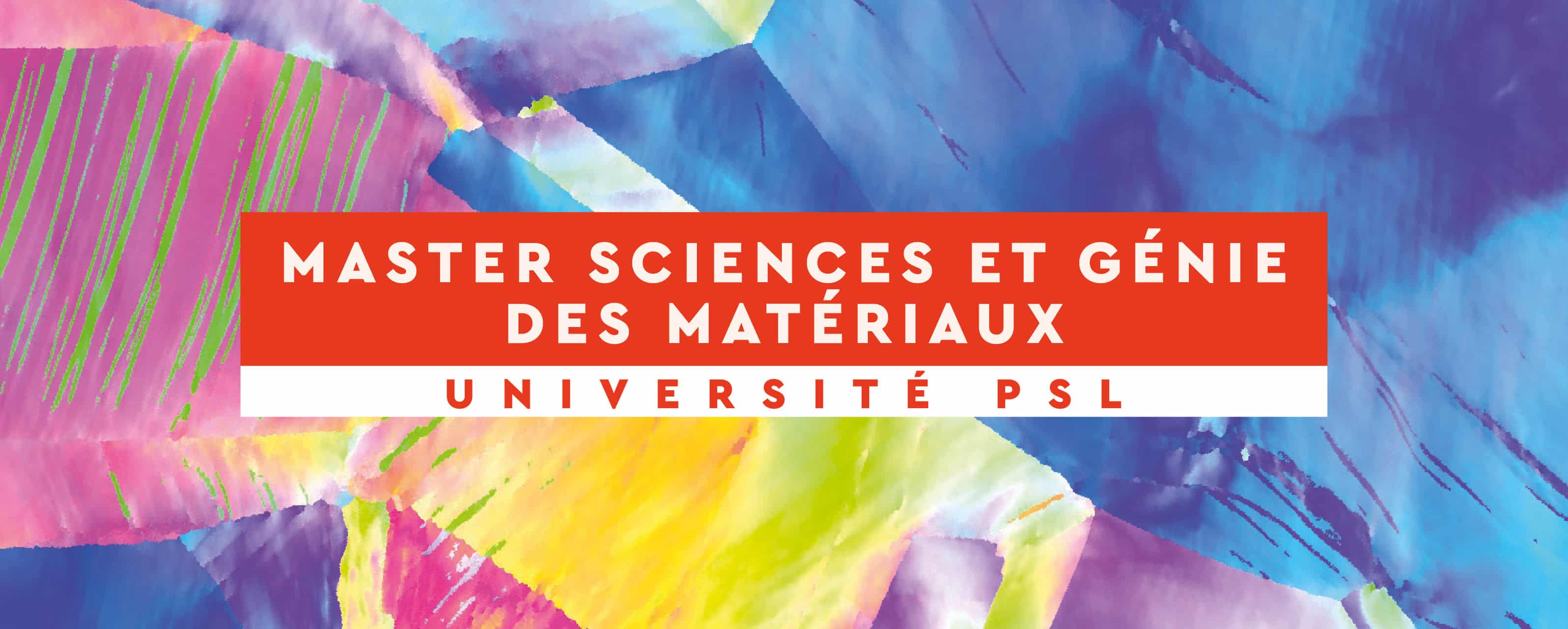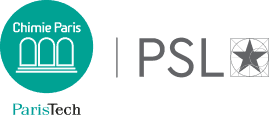Manager of the Master’s program: Lola LILENSTEN, Chimie ParisTech - PSL et Vincent GUIPONT, Mines Paris - PSL

Hosted by PSL’s three engineering schools (MINES Paris - PSL, ESPCI Paris - PSL and Chimie ParisTech - PSL), the Master in Materials Science and Engineering also, for some tracks, involves cross-over with École Nationale Supérieure des Arts Décoratifs (ENSAD), Paris-Dauphine University, and institutions outside PSL.
It is affiliated to the PSL's Graduate Program in Engineering (ISAI) 
The degree is delivered by PSL University.
Registration institution Chimie ParisTech - PSL
Master 1
The goal of the M1 program is to provide a common base of theoretical and experimental knowledge in the field of materials, which is necessary before any specialization. It offers a fairly general training in chemistry, physics and materials mechanics. This program starts to refine the student’s academic path through optional teaching units (UE) that are used as a guide toward one of these three domains, depending on the choice of M2.
It also includes an internship of two to three months and a research project.
Master 2
PSL’s Master’s in Science and Materials Engineering offers three different majors at the M2 level.
Mechanics of Materials for the Engineering and Integrity of Structures (MAGIS)
This program on the mechanics of materials is taught at the Arts et Métiers ParisTech and at the Paris Saclay University. It aims to establish the relations between procedure, material used, its microstructure and its mechanical properties for advanced industrial applications and innovative procedures.
This curriculum is co-accredited by Paris-Saclay University and ENSAM (Arts & Métiers).
Materials of the Future: Design and Engineering (MADI)
This course offers an integrated vision of different materials of the future, including the synthesis processes, the strategy of choice of structure and architecture and the associated physical properties. The physical and chemical properties of the major classes of materials are presented in synergy (metals, ceramics, inorganic compounds, polymers, etc.). At the end of the program, the student must be able to elaborate a relevant and/or innovative material for an application whose specifications will have been defined in relation with other design contributors (designer, production engineer, marketing, etc.)
To learn more about MADI (all details)
Microfluidics
Taught between the UPMC, the Paris Diderot University and the Paris Saclay University, this program educates students in the field of microfluidics (the science of flows at the micrometric scale), but also in any field involving fluids and micro/nanotechnologies. This is why the program is very open: fluid dynamics, physical chemistry, openness to biology, biotechnology. Many micro/nanofabrication TPs are on the program.
This curriculum is co-accredited by Paris-Saclay University and Sorbonne University (SU)
Admission to M1 and M2 programs is done with application and requires a validated L3 or M1, respectively, or equivalent for candidates who hold foreign degrees. In addition to registering on the Campus France website, the later must fill out an application with the educational institution.
